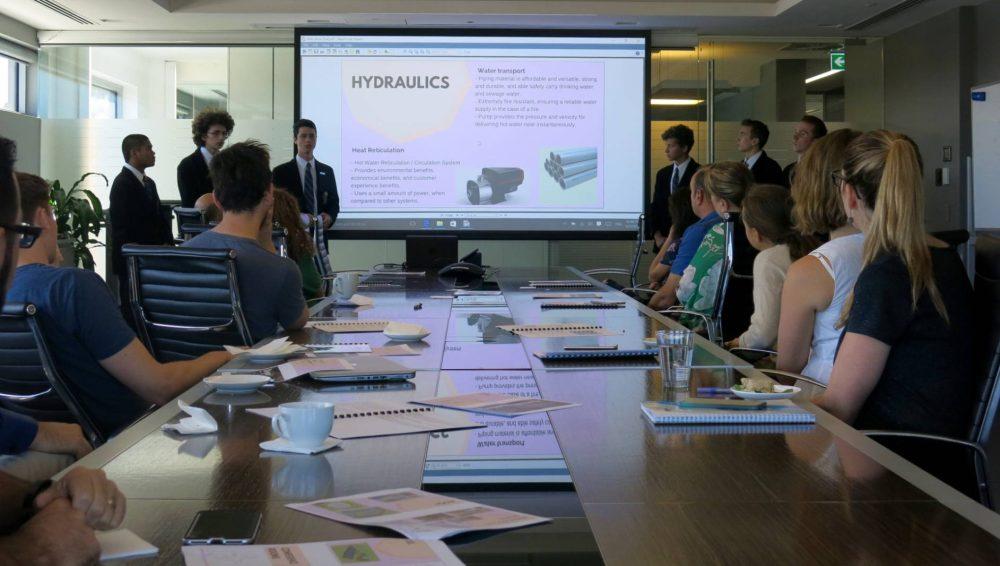
Newsletter
Careers News April 2022
5 October 2024
In July 2013 Lily Hester, sister of Oliver, a Year 10 St Bernard’s student, was diagnosed with an extremely rare liver cancer.
Lily endured over 6 months of chemotherapy, 6 operations and radiation amongst other tests, scans and many, many hospital visits.
In January 2014, Lily did go into remission, however after another scan in March 2014 Lily’s family was told the most devastating news of their lives – Lily was terminally ill.
Lily fought hard, was brave and an inspiration. Lily, so sadly passed away on the 11th of August 2014. The Foundation was established to honour Lily. The hope of the Foundation will be to find a cure for childhood cancer.
This last week the students of St Bernard's College have been riding 5 stationary bikes in support of the Live for Lily bike ride. The students have raised much needed funds over the last week, and we are proud of all their efforts.
We wish Oliver Hester (Year 10) all the best of luck on his 1000km bike ride over the holiday period. His strength and determination are what every SBC student should strive to have.
During Term 1, Year 9 Food Safari students have explored European cuisine and its influences on eating in Australia.
The boys have worked in small teams to bottle their own passata and make fresh pasta. They then compared their pasta to commercial products.
A big thank you to Mr. John Villella and his sister Angela for leading the passata making masterclass and for sharing their family traditions, passata machine and a delicious meal with us.
Our St Bernard's Rowing Team competed at The Nationals over the past weekend, placing 6th which makes them the 6th best fast sprint coxed quad in Australia! The crew were only 3.66 seconds behind first place - showcasing how close the competition overall was. Well done boys! We are extremely proud of your accomplishment and are looking forward to a strong rowing future at SBC!
At the start of the 2022 debating year, we saw a massive rise in interest of new younger debaters. This was both exciting and so refreshing to see!
Thomas and I have been avid debaters and public speakers since we both joined the debating club in year 8. It has been a significant part of our St Bernard’s experience. The skills we have acquired from debating have spanned far more than just speaking publicly. It has allowed us to develop our expertise in research, communication, team work as well as allowing us to tackle important topical issues with nuance and impartiality.
We encourage anyone interested in debating or public speaking to join the debating team next year as well as apply for the ACC Intermediate and Junior public speaking and debating competitions which will occur in August and November respectively.
Each year, St Bernard’s College hosts the Essendon region for the Debating Association of Victoria that comprises of all schools in the surrounding Essendon area. Round one for debating occurred on Tuesday the 15th of March.
For the first round of debates, our D graders argued the topic ‘That sporting bodies should not accept the sponsorship from gambling companies’. St Bernard’s D grade teams 5, 6 and 3 all held the affirmative view on this debate. St Bernard’s teams 1,2 and 4 were appointed the negative side for this debate. Our D grade teams 1,3, and 5 all won their first debate! Best speakers for these debates were Lucas Ciavarella and Matthew Skidmore.
The B grade team were given the topic ‘That artists should be held legally accountable for the deaths and injuries that occur in their concerts’. However, the B graders won by forfeit.
The A grade team were tasked with exploring the intricacies of vaccination with the topic ‘That people who are unvaccinated for COVID-19 by choice should not have access to the public health system’. The A grade team were given the negative side to this debate and won by 5 points and the best speaker being appointed to Thomas Alessandrini.
The second round of debating occurred on Monday the 28th of March. This one proved a little more arduous, with only one team securing a win that night. Round of applause to D Grade Team 1 for winning, but also a round of applause to all the debaters who poured a lot of time and effort into preparing well-constructed cases.
The D grade topic for the Round 2 debate was ‘That we should abolish the Australian citizenship test’, an insightful and complex topic that allowed the boys to flex their thinking skills. Congratulations to Joshua Zanella for winning best speaker, despite the near loss.
The B grade topic for the round 2 debate was ‘That only citizens and permanent residents should be able to own property in Australia. A challenging case, but our B graders lost to Maribyrnong College on that night.
The A grade topic for this debate was ‘That we prefer a hung parliament to a majority government’; a difficult topic that forced us to criticize our parliamentary system, ultimately to our downfall where we lost a fierce debate against Buckley Park.
A job well done to all those that debated, but all those that contribute to speech-writing and research. Your work does not go unnoticed! We wish the best of luck to all the teams entering the next rounds!
The students of St Bernard’s were joined by award winning author James Phelan and Manga artist Kenny Chan for a creative writing and Manga art workshop. The event was held in the Mitchell Library and was attended by 45 students. A fun and creative time was enjoyed by those who participated, the boys were able to develop and enhance their creative writing and art skills. Learning from James and Kenny has been a valuable experience as they were able to delve deep into various aspects of writing and art that have allowed them to be experts in their field.
The Year 7 and Year 8 cohort were treated to a presentation from James Phelan and were able to learn valuable insights into the life and learnings of a very successful Melbourne author.
Mitchell Library will be closed over the April school holiday break.
Holiday Reading recommendations
The betrayal of Anne Frank
This is a cold case investigation into who betrayed the family of Anne Frank. It is an intriguing search for the truth of a shocking time in world history. This book brings to life wartime Amsterdam: a place where no matter how wealthy, educated, or careful you were, you never knew whom you could trust. Using new technology, recently discovered documents and sophisticated investigative techniques, an international team—led by an obsessed retired FBI agent—has finally solved the mystery that has haunted generations since World War II: Who betrayed Anne Frank and her family? And why?

SEL (social and emotional learning) Read
Honeybee by Craig Silvey
This story follows Sam and Vic. Sam is a teenager who is struggling with his dysfunctional family and gender identity and Vic is coming to terms with a medical diagnosis and the loss of his wife. Both Vic and Sam meet when they are at a very low point however their friendship transforms their lives and strengthens their belief in themselves and accepting people for who they are. This is a wonderful read that may challenge the reader however is heartwarming and ultimately triumphant. Highly recommended.

What an eventful and productive Term 1 we have had in the Languages Department with our students. It has been wonderful having the boys back for a full term of face-to-face learning. This year we welcome Sensei Ryx Wang and Sensei Christopher Lee teaching Japanese and we thank Professoressa Viviana Stangherlin for replacing Professoressa Diana Dodig who was on leave and returns to the team at the beginning of Term 2 teaching Italian.
It gives me great pleasure to share the successful results of our school competing in the Education Perfect World Languages Championship 2022 competition last month. From March 8 – 15 our boys were challenged to answer as many questions correctly using the EP platform in Italian and Japanese, to enhance their knowledge and understanding of the language they are learning. Participants earned a point for every question answered correctly. The results are outstanding and for the first time in our five-year history of the competition, we have our first student to achieve the highest award category Elite. Congratulations to Ethan Gissara (Year 8 Italian) in Professoressa Rabusin’s class for achieving a massive 10,408 points. Ethan spent approximately 30 hours completing questions and modules across that week and this demonstrates phenomenal discipline, commitment, hard work and dedication.

Alongside Ethan as our top scorer, there are 30 other boys who also worked extremely hard to achieve their respective awards. Please see the list of names below of all the boys who excelled in this competition.



The Languages Team look forward to recognising the achievements of all the boys when we return in Term 2 at our upcoming High Achievers Assembly, where the boys will each receive their Award and a prize.
I wish all in our community una Buona Pasqua (a Happy Easter) with your families during the term break and look forward to working with your son in Term 2.
Saluti / Arigatou,
As of Tuesday 9th February, 2022, the Uniform Shop will be operating by appointment only. This will help alleviate lengthy queues during peak periods.
Click here to make an appointment
If you know the sizes of the items you require, visit https://shop.sbc.vic.edu.au/ to order online.
For all other uniform enquiries, please email rbuhagiar@sbc.vic.edu.au or phone 9289 1176.


An interesting article for students looking back to the 1950’s in a periodical called “Our Studies”.
Telephone Etiquette
So many people use the telephone much more than letters as a means of communication, that it is surprising some emphasis is not made in English classes on the manner of its use.
1. Clear the Air
Answering the telephone with a meaningless “Hello” does not help at all. Something informative should be said, either by giving the receiver’s name or number.
2. Dial Correctly
To connect with a wrong number causes not only inconvenience to the receiver but also avoidable expense.
3. Explain Delays
It is not uncommon to ask for someone on the telephone and then be left for as long as five minutes during an unexplained delay. Such annoyance can be avoided either by informing the caller of the likely delay, or by suggesting that the caller may wish to ring later at a more convenient time.
4. Speaking Distinctly
Too many take for granted that their normal mumbling or slurred speech will pass muster just as well on the telephone as it will otherwise. It is necessary to make a conscious effort at distinctness.
5. Write it Down
Beside every private telephone there should be a memo pad and pen to record any phone numbers or messages.
6. Be Brief
Even though the telephone call is a more or less informal medium of communication. There are reasons why it should not be prolonged inordinately. Someone else may be waiting to make an urgent call.
7. No Confidences
Cross lines have sometimes been the cause of embarrassment and even injustice.
8. The Initiative
Awkwardness in terminating a telephone conversation would often be avoided if it was remembered that the initiative for terminating a call belongs to the caller.
9. Share the Burden
A reminder is needed for some thoughtless people who leave it to other members of the family to answer the telephone whenever it rings.
10. Be Pleasant
An individual’s personality is often found to be shown in the use of the telephone. The mechanical impersonality of the instrument needs a little human warmth.
Reference: Our Studies - Volume 30 No. 2 September 1957

Flight Training & Aviation
RMIT’s Flight Training School has added 24 new aircrafts to its fleet, and this top of the range fleet allows students to use and be trained with the latest aircrafts while they study.
RMIT offers two courses that lead to a qualification as a pilot.
Bachelor of Aviation (Pilot Training) – a 3-year degree where students gain the skills to become a commercial pilot while also learning about the aviation industry.
Conducted on both the City Campus and at the RMIT Flight Training School at Point Cook Airfield, this degree gives students a broad, coherent and detailed body of knowledge and theory related to the global aviation industry, preparing them for a successful career in the skies.
Students build the skills necessary, to critically review and analyse all aspects of the aviation industry and learn how to work both individually and in teams to solve real industry issues. Students graduate with a vast array of tools and knowledge to communicate to a diverse range of stakeholders and manage industry-specific projects.
In addition to extensive theory work, this degree includes flight training. This training will assist students to gain a Recreational (RPL), Private (PPL), and Commercial Pilot Licence (CPL), which enables them to fly commercially within Australia.
Associate Degree in Aviation (Professional Pilots) – a 2-year associate degree where students develop the necessary skills and knowledge to apply for a recreational pilot licence (RPL), a private pilot licence (PPL) and gain the aeronautical knowledge, practical skills and appropriate behaviours required to achieve the CASA certification as a Commercial Pilot. In the final semester students have a choice between instrument rating (IREX) with a frozen Air Transport Pilot Licence (ATPL) or Instructor Rating (FIR).
Graduates of this course have a guaranteed pathway to the Bachelor of Aviation (Pilot Training).
RMIT Flight training has also released a video for students considering studying at either the Point Cook or Bendigo training sites. The video details the course structures for both the Associate Degree in Aviation (Professional Pilots) and the Bachelor of Applied Science (Aviation) programs.
Watch the video here.
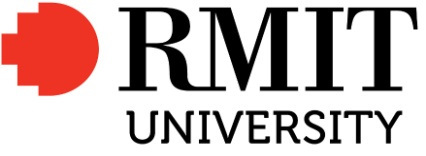
RMIT is running a series of online course information sessions over the coming months: https://www.rmit.edu.au/events/2022/may/all-you-need-to-know
![]()
The VU Block Model
At Victoria University (VU) we have revolutionised tertiary education in Australia with our multi-award-winning VU Block Model.
Unlike the standard university model where students juggle multiple subjects at once over a semester, at VU students get to focus on one unit at a time over a four-week ‘block’. Students typically finish their block on a Friday and receive their results on the following Monday, taking away uncertainty and a long wait for results.
The top 3 reasons VU’s Block Model is the “New Way To Do Uni” are listed below:
1) Achieve more
Not only has Block Model seen pass rates increase, more students are becoming high achievers with Distinctions and High Distinctions grades increasing.
2) Stand out
Block class sizes are small, students get to know their classmates and teacher, and become a working team, not just a face in a lecture theatre.
3) Build confidence
Learning in small, collaborative working groups, students are empowered to share ideas, debate concepts, and explore learning opportunities from their first class.
Students might like to watch a YouTube clip on the VU Block Model, as well as browse the link
Why Choose the VU Block Model?
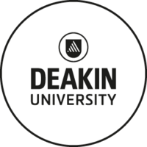
Deakin Campus Tours 2022
Deakin University would like to invite students and their families to participate in its campus tours these upcoming school holidays.
Led by current Deakin students, the 1-hour small group tours are a great way for students to see Deakin’s facilities and learning spaces, get a feel for university life, and ask questions about the courses that interest them. Tours will depart daily from 9.00am until 3.00pm, and will run according to university on government COVIDSafe guidelines.
Melbourne Burwood Campus
Date: Monday 11 April OR Wednesday 13 April OR Thursday 21 April
Geelong Waurn Ponds Campus
Date: Thursday 14 April OR Wednesday 20 April
Geelong Waterfront Campus
Date: Tuesday 12 April
Warrnambool Campus
Date: Wednesday 13 April
Registrations are essential. To find out more about the tours, and to register to attend, please visit Deakin Campus Tours 2022.

Discover Monash Seminar Series
Hear directly from current students, alumni, and staff across our ten faculties. Students are encouraged to register to attend as many of these course information events that might be of interest to them. Note: some are ZOOM meetings*
Discover Pharmacy and Pharmaceutical Science* | Wed 30 March, 6.30pm – 8.00pm | |
Monash Information Evening: Peninsula Campus | Tues 5 April, 6.30pm – 8.00pm | |
Discover the Monash Science Experience | Wed 6 April, 6.30pm – 8.00pm | |
Discover Biomedical Science and Medicine at Monash | Wed 6 April, 6.00pm – 7.15pm | |
Discover Course Options at Monash Peninsula | Thur 21 April, 1.00pm – 1.45pm | |
Discover how to become a Teacher (Monash Clayton) | Tues 17 May, 6.30pm – 7.30pm | |
I.T. Discover a World of Possibility | Tues 17 May, 6.30pm 7.30pm | |
Discover Physiotherapy, Occupational Therapy, & Paramedicine* | Wed 18 May, 6.00pm – 7.15pm | |
Discover how to become a Teacher (Monash Peninsula) | Thur 19 May, 6.30pm – 7.30pm | |
Discover Public Health, Nutrition, and Health Sciences* | Thur 19 May, 6.00pm – 7.15pm | |
Discover how to become an Artist or Curator | Tues 24 May, 6.00pm – 7.00pm | |
Discover how to become a Designer | Wed 25 May, 6.00pm – 7.00pm | |
Discover Nursing and Midwifery at Monash* | Wed 25 May, 6.00pm – 7.15pm | |
Discover how to become an Architect | Thur 26 May, 6.00pm – 7.00pm | |
Discover Radiography, Medical Imaging, Radiation Science, Psychology* | Thur 26 May, 6.00pm – 7.15pm |
Campus Tours – April Holidays
Get a feel for what it's like to study on campus. Students keen on studying at Monash University are recommended to register for one or more of the upcoming campus tours.
Register at Campus Experience.
Clayton Campus Tour | Monday 11 April, 10.00am – 11.30am |
Monday 11 April, 2.00pm – 3.30pm | |
Tuesday 12 April, 10.00am – 11.30am | |
Tuesday 12 April, 2.00pm – 3.30pm | |
Thursday 21 April, 10.00am – 11.30pm | |
Friday 22 April, 10.00am – 11.30am | |
Peninsula Campus Tour | Thursday 21 April, 2.00pm – 3.30pm |
Caulfield Campus Tour | Friday 22 April, 2.00pm – 3.30pm |
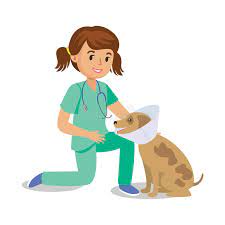
Career in Veterinary Nursing
The Good Careers Guide * states that Veterinary Nurses provide support to veterinarians in the management and care of animals receiving medical and surgical treatment.
The Personal requirements for a Veterinary Nurse include -
Enjoying working with animals
Able to handle animals with confidence and patience
Able to make accurate observations
Having good communication skills
Having good organisational skills
Being able to work as part of a team
Being caring and understanding
Some of the tasks a Veterinary Nurse might have to do include –
Providing animal care advice, and preparing, delivering, and reviewing animal care education programs.
Assisting Veterinarians to administer anaesthetics and oxygen during operations.
Holding animals to allow examination and treatment by Veterinarians.
May act as receptionist, accept payments, and undertake clerical work.
Giving medications to animals.
Placing animals in cages for recovery from operations and monitoring their condition.
Maintaining stock control and records.
May perform diagnostic laboratory tests.
Preparing instruments and handing them to the Veterinarian.
Cleaning and sterilising examination tables and equipment.
* The Goods Careers Guide – Veterinary Nursing
Veterinary Nurses need to have a minimum of a Certificate IV in Veterinary Nursing, although qualifications can include diplomas and bachelor degrees. Some of these can be found at Box Hill Institute, Melbourne Polytechnic, and La Trobe University.

Pathway to Physiotherapy
In 2021, Monash University introduced the Doctor of Physiotherapy, a three-year graduate-entry degree based at the Peninsula campus. This offers students with a passion for physiotherapy another pathway to a qualification, if unsuccessful in their application to the Bachelor of Physiotherapy (Honours).
A Monash Bachelor of Biomedical Science, Science, or Health Sciences degree is a great foundation for the Doctor of Physiotherapy. Students must also meet specific unit requirements.
Find out more at Doctor of Physiotherapy.
University Clinical Aptitude Test
The University Clinical Aptitude Test (UCAT) is an admissions test used by the UCAT ANZ Consortium of universities in Australia and New Zealand for their medical, dental, and clinical science degree programs. Universities requiring the UCAT are listed at this link - Universities requiring the UCAT. Students intending to apply for courses requiring the UCAT at any of these universities are reminded that they will need to book a test.
Bookings will open on 1 March 2022 and close 17 May 2022. The testing dates will be from 1 July 2022 to 12 August 2022.
Students who are preparing for entry into any of these courses are encouraged to familiarise themselves with the format of the test at UCAT Test Format and the practice tests and preparation material provided at UCAT Preparation.
Find out more at UCAT.
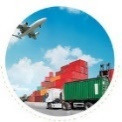
Freight, Transport, and Logistics Industry
An industry that is continuing to grow is in transport and logistics. There are many careers in this diverse industry from actually driving a truck or train, to being part of the logistics team involved in the planning and distribution of freight and people. A particularly important part of this industry is in international freight – be it freight coming into Australia (imports) from all over the world, or cargo being sent from Australia (exports). People involved in this do not move the freight themselves, but instead act as an agent, connecting exporters, importers, and various transportation services like shipping, air freight, road transport, and rail.
An interesting website to visit is Make Your Move and students can also access videos of current students training in this industry.
There are two universities in Melbourne that offer dedicated logistic courses – RMIT and Victoria University. Students are encouraged to browse the following links providing more information about these courses:
Designed to help to develop a students’ knowledge and interest in contemporary issues central to the logistics and supply chain management industry. This unique degree prepares students for this essential industry, providing them with sought-after knowledge, and both hard and soft skills to allow them to thrive in a challenging and rewarding career. Throughout their studies, students will focus on developing end-to-end supply chain knowledge to deal with day-to-day and strategic supply chain issues.
Diploma of Logistics at RMIT
Designed to give students an understanding of key business areas while they develop specialist knowledge in transport and logistics planning, blockchain in supply chain management, and operations and risk management. This combination of skills, plus opportunities to engage in practical projects and collaborate globally with students and clients, will prepare students to move straight into the workforce after graduation, or to continue on into the bachelor degree.
Bachelor of Business (Supply Chain and Logistics Management) at Victoria University
Students enrol into the Bachelor of Business and study the Supply Chain and Logistics Management major. This major will enable students to pursue a business career in logistics and supply chain management, export/import operations. This major will also give students the skills to work closely with other companies in areas like manufacturing and services.
Logistics units/subjects are often offered in business degrees at universities.
Students are encouraged to browse VTAC for a comprehensive list of what is on offer across tertiary institutions in Victoria.
![]()
News from Victoria University
New Bachelor of Data Science
The Bachelor of Data Science has been designed for students with an interest in statistics, data analysis, machine learning and software development. The course has an industry-focused curriculum with a focus in practical expertise.
With market information and technology evolving at great speed, skilled professionals are needed to transform data into actionable insights for business. The Bachelor of Data Science is designed to meet this demand and give students the tools to analyse trends for business success, and launch a career perfectly aligned to industry needs.
Students will gain targeted expertise in:
mathematics and statistics
exploratory data analysis
machine learning
regression
classification
clustering techniques
text analytics
image and speech processing.
The VCE entry requirements are the completion of the VCE or equivalent, Units 3 and 4: a study score of at least 25 in English (EAL) or 20 in any other English, plus a study score of at least 20 in Mathematics (any).
Find out more about this course at Bachelor of Data Science.

Studying Design Courses at RMIT
Whether you’re passionate about graphic or interior design, merchandising or animation, study at the #1 design university in Asia Pacific.
RMIT offers a range of courses for students who are creative, curious, and keen on studying the creative arts.
Students are encouraged to browse this link to find out about all that is on offer.

Australian Apprenticeships and Traineeships Information Service
The Australian Apprenticeships and Traineeships Information Service (AATIS) offers pathways information to students, job hunters, career advisers and employers. The website, app and resources are used by schools, parents, friends, and supporters providing career planning and direction. AATIS is free to use and is funded by the Australian Government Department of Education, Skills and Employment.
The Australian Apprenticeships Pathways website - AAPathways - is a hub providing in-depth information about Australian apprenticeships and traineeships, including over 2,000 sample job and training descriptions, steps on how to find an apprenticeship, industry-based job pathways charts and practice literacy and numeracy quizzes.
Students are encouraged to browse both the AAPathways website, as well as the AATIS website.
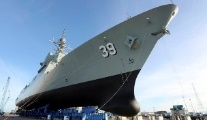
Career in Naval Shipbuilding
With more than $160 billion invested by the Australian Government, and 15,000 people needed at the peak of work, Australia’s Naval Shipbuilding Industry is growing rapidly – this is great news for young Australians looking for a secure and dynamic career!
Modern shipbuilding is more than working with sheets of metal in shipyards. It is highly technical and incorporates cutting edge engineering, technology, and systems to ensure the ships and submarines are invisible to attack, can detect threats and ensure the safety of the crew on board.
In the coming years, Australia’s Naval Shipbuilding Industry is going to need people with lots of different skills to work in a wide range of roles – from city-based office roles to hands-on positions in the shipyards.
Students keen on finding out about studying to work in this industry, are encouraged to browse Naval Shipbuilding College to discover more. Students might also like to watch this YouTube Life as an Apprentice in Australia's Shipbuilding Industry clip.
![]()
New Bachelor of Criminology and Criminal Justice degree
The Thomas More Law School has introduced the Bachelor of Criminology and Criminal Justice.
Already proving popular with students in 2022, this course explores the causes of antisocial behaviour and develops the knowledge and expertise needed to make a valuable contribution in the criminal justice sector. Students gain a deep understanding of the complex causes and impact of crime, and the legal and social policies that keep society safe. The degree includes studies in forensic psychology, forensic science, cybercrime, border protection and biosecurity and understanding violence and trauma. All criminology students also undertake a community engagement in the third year of the course.
Find out more at Bachelor of Criminology and Criminal Justice.


After a difficult two years of COVID the Welcoming Community Group invite you to come and celebrate once again.
Don't miss out! There are only 150 tickets available for this event.
Tickets are $105 per person and all inclusive
- Champagne on Arrival
- Three course dinner with drinks.
- DJ Entertainment.
Friday 17 June 2022 6:30 PM - 11:00 PM

